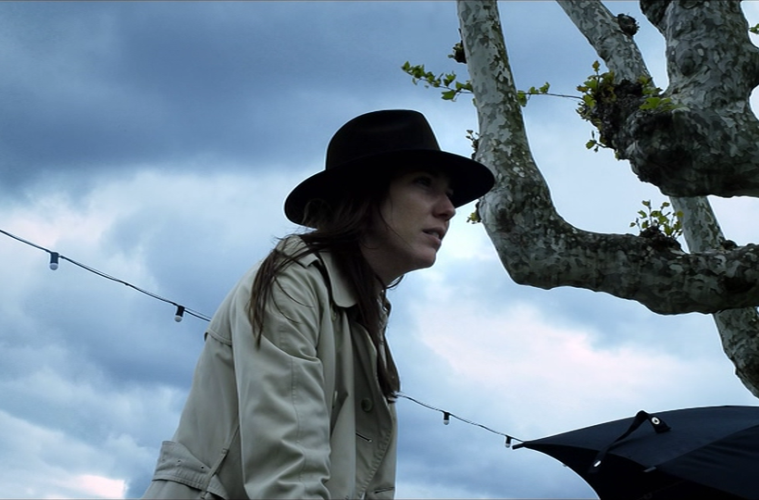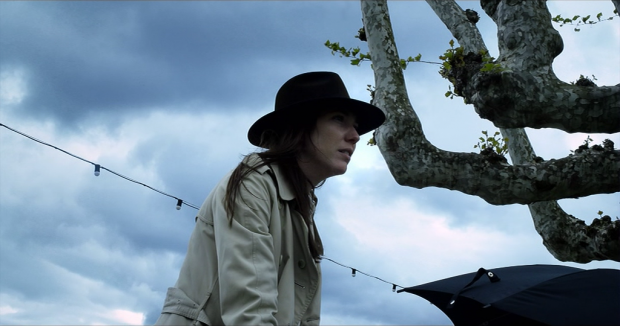
The one thing I’ll state about the year overall: I found it notable that, despite being in the “digital” era, over half of my list was shot on 35mm or 16mm. Whether that is a personal taste for grain or simply fighting against, to quote the title of one 2014 release, the dying of the light, is how you may interpret it.
Honorable Mentions

10. Abuse of Weakness (Catherine Breillat)
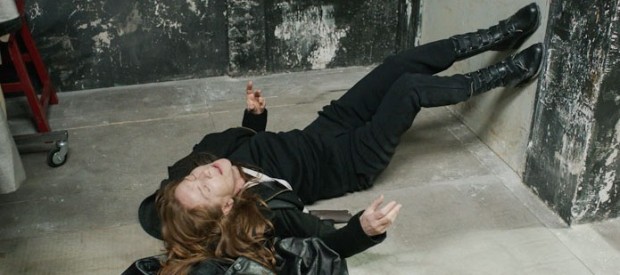
A woman thinks she’s possessing another, unaware that she’s really the one being controlled, a limp arm the only physical sign of the demon inside her. Clinically staged to a Hitchcockian degree, a horror film that uses the directness of the camera to bring us closer to a mystery that only a filmmaker capturing her own autobiographical past could understand with such chilling methodology.
9. “American Mythologies” Trilogy – The Immigrant / Inherent Vice / Jersey Boys (James Gray / Paul Thomas Anderson / Clint Eastwood)
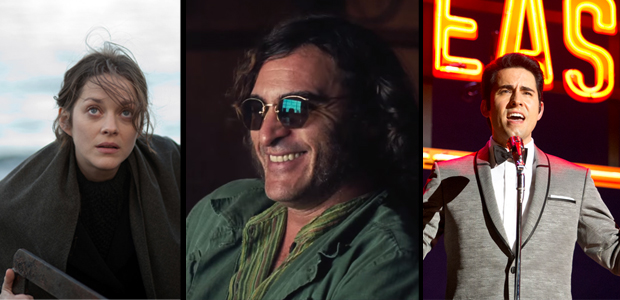
Three directors in search of the mythic 20th century, capturing iconic surfaces to dig into the complexity behind them. Archetypes abound, but the camera pushes beyond the symbols of an era to find the cost of human emotion, whether through the close-up of a face, a two shot framing polar opposites as brothers, or the revelation of the artifice of light and sound. These are films looking at the past, but instead of giving a distant view from the present, they envelop us to show that we are standing directly in their moment, too.
8. Boyhood (Richard Linklater)
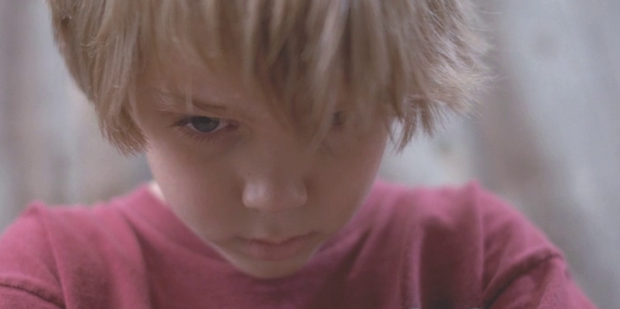
A documentary of This American Century, but ultimately a story of rejection, a hope for something beyond the city limits is a way out of family values, politics, Texas life, technology, and more. But as much as we may stage an alternative, we can’t help but be shaped by the factors that made us. “The moment seizes us,” defining us when we least expect it.
7. Manakamana (Stephanie Spray & Pacho Velez)
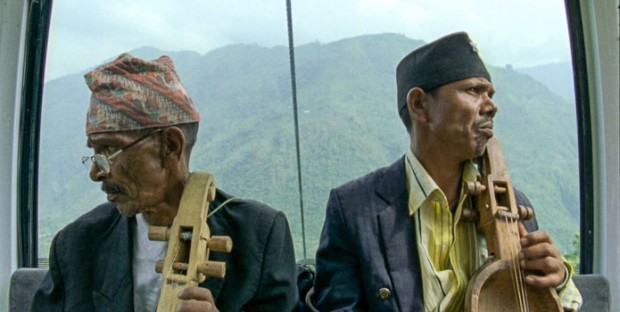
Technology and nature together, enabling a series of conversations between young and old, native and foreigner, religious and atheist, and even animal and man. A film that emphasizes our ability to look directly and understand, celebrating the small delights of this world — even a race to finish an ice cream bar.
6. John Wick (Chad Stahelski & David Leitch)
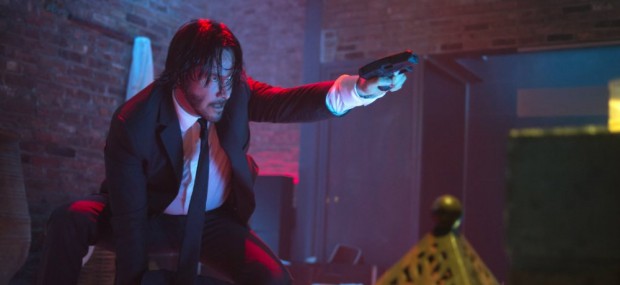
If Johnnie To can’t make movies the way he used to, Keanu Reeves can.
5. Listen Up Philip (Alex Ross Perry)
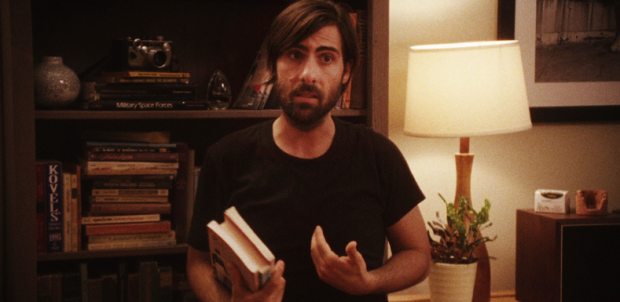
The first-person perspective turned into a whirlwind of perceptions that face inward. The bitterness of each line containing a wallop of emotions, all registered for the briefest of moments in the face. An absence is as darkly felt as its negative presence, like a blank sheet of paper with some staples in it.
4. The Grand Budapest Hotel (Wes Anderson)
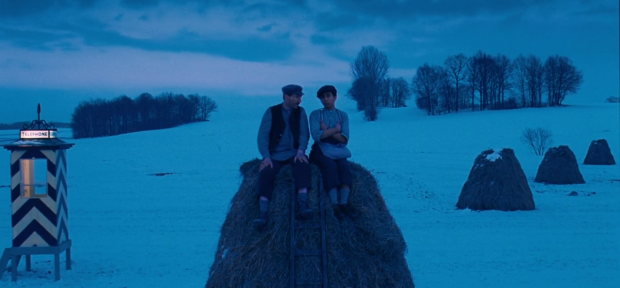
“There are still faint glimmers of civilization left in this barbaric slaughterhouse that was once known as humanity.” Art in the age of unprecedented violence: the last defense against the brutality of modern warfare. Appearances to be kept at all costs, passing nostalgia through the generations while remembering an era when frivolous details carried another name: beauty.
3. Two Days, One Night (Jean-Pierre & Luc Dardenne)
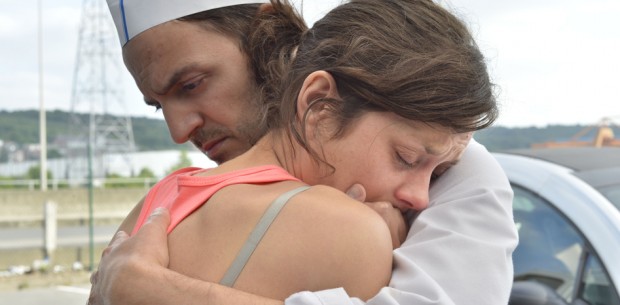
A profoundly simple truth — that each individual life has value — turned complex through deconstructing another truth: one versus many as the story of one within a collective, each individual with their own worth as well. A style that was once thought to be ultra-realistic is revealed as purely classical, predicated on translating emotions into a physical presence — even grace itself.
2. Goodbye to Language (Jean-Luc Godard)

A vision without meaning and toward being. Two binary romances collapse, and yet there remains one frolicking individual who is more than willing to leap into nature and see things anew. Truly a new vision of translating the moving image: Bazin’s Total Realism becomes Arnheim’s Total Cinema, and, with that, a new freedom away from the totalitarianism of the 20th century. Mary Shelley’s monster, after all, was the most pure being she created.
1. Jealousy (Philippe Garrel)

A search for unknowable romantic truths, causing a paranoia that runs deep in the heart of needing to love and be loved. Romantic follies not as great revelations, but simply the flows of life, edited without announcement. An autobiographical tale across three generations, compressed like a visit in the desert, only lasting so long before one must leave. Devastating in its subtle lightness, images and sounds like a vision of the remembered past, flashing through memory before turning off the light.

